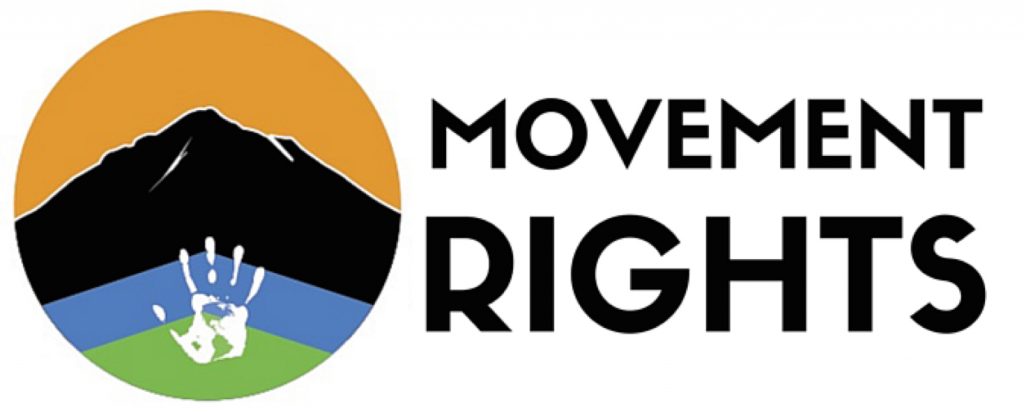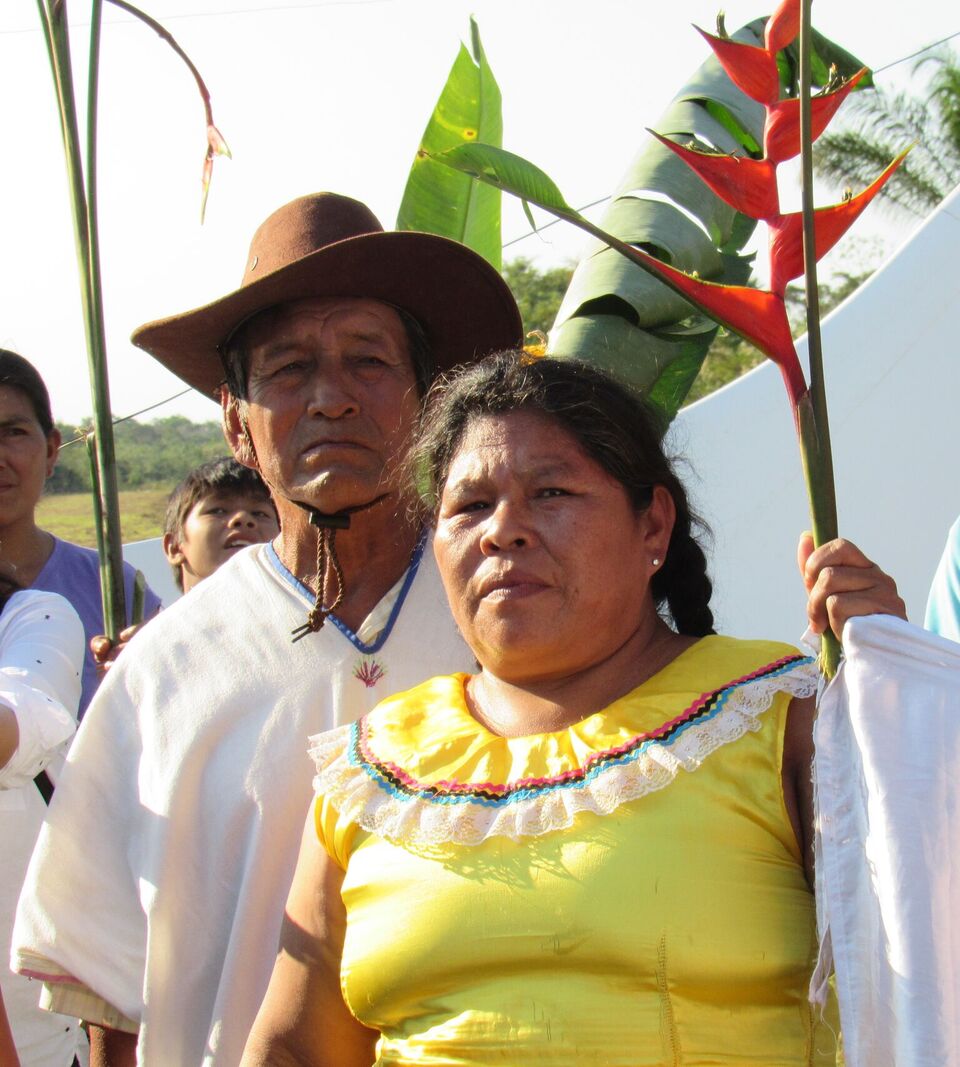PRESENTATION OF THE REPORT OF THE COMMISSION OF THE INTERNATIONAL COURT OF NATURAL RIGHTS IN THE CASE: INDIGENOUS TERRITORY AND ISIBORO SÉCURE NATIONAL PARK (TIPNIS), BOLIVIA
VIEW PDF: Report TIPNIS Commission pdf
VIEW PDF in Spanish: Informe Tribunal final pdf
WHAT IS THE INTERNATIONAL TRIBUNAL FOR THE RIGHTS OF NATURE?
The Court is an body of ethical nature that aims to investigate and rule on cases of violations of the Rights of Nature, or for the breach of responsibilities by international organizations, States, private or public legal entities or individuals, in application of what is established in the Universal Declaration of the Rights of Mother Earth approved in 2010, during the World Peoples Conference on Climate Change and the Rights of Mother Earth, held in Tiquipaya, Cochabamba, Bolivia. Likewise, in the case of Universal Rights, those legal bodies will be incorporated, such as those that derive from the Constitution of the Republic of Ecuador, approved in a plebiscite by the Ecuadorian people in 2008.
The Court is made up of judges and judges of recognized ethical authority and commitment to Mother Earth named by defenders of Mother Earth from different parts of the world.
This Court began its session on January 17, 2014 in Quito, Ecuador, chaired by Dr. Vandana Shiva, a leading physicist and ecofeminist from India, recognized around the world for her ecological struggle. On December 5 of the same year, the Court met in full-for the second time-in the city of Lima, Peru, chaired by the Ecuadorian economist Alberto Acosta, who was president of the Constituent Assembly of his country in 2007 and 2008. On November 4, 2015, the lawyer and specialist in the Rights of Nature of South Africa, Cormac Cullinan, presided over the third session of the Tribunal. In Bonn, Germany, on November 7, 2017, the Tribunal was installed with the American Indian leader Tom Goldtooth (Dine’ and Dakota) as its president. During this period, several national and subnational sessions were held in Ecuador, Australia, India and the United States.
Video of official press conference:
WHO ARE THE MEMBERS OF THE COMMISSION THAT VISITED BOLIVIA?
Alberto Acosta (Ecuador). Ecuadorian Economist. Before being named Minister of Energy and Mines, he was a researcher at the Latin American Institute of Social Research (ILDIS). He was also a researcher and professor at FLACSO-Ecuador. Former president of the Constituent Assembly that recognized the Rights of the Nature in Ecuador. Former candidate for the Presidency of the Republic of Ecuador. He is a university professor, lecturer and author of books.
Enrique Viale (Argentina). Environmental lawyer He graduated from the University of Buenos Aires (UBA) and then did postgraduate studies at the same institution, specializing in Environmental Law. In 2004, he founded – together with other young colleagues – the Argentine Association of Environmental Lawyers (AAdeAA). He is a professor at the Faculty of Law (UBA) and a guest at other universities. He is critical of the “development” model based on unlimited growth, promoter of the rights of nature and has coined the concept of “urban extractivism” to refer to the role of real estate speculation in urban and peri-urban areas. He is also the author of several articles on Development, Politics, Law and Environmental Justice published in Argentina and abroad.
Shannon Biggs (USA). Co-founder and Executive Director of Movement Rights, an NGO that promotes legal rights for communities, indigenous peoples and ecosystems. She works in California with Native American tribes and national allies, helping communities ban harmful projects by passing binding laws that affirm the rights of communities and nature over corporate projects. Internationally, she is a recognized leader of the Rights of Nature / Movement of Mother Earth, co-founder of the Global Alliance for the Rights of Nature, co-author / publisher of books, including “The Rights of Nature, presentation of the case for the Universal Declaration on the Rights of Nature.” Movement Rights also conducts training on the rights of communities and the rights of ecosystems throughout the United States.
International Court for the Rights of Nature
PRESS RELEASE 001/2019
International Commission recommends sanctioning the government
of the Plurinational State of Bolivia for the TIPNIS case
January 16, 2019
The commission that visited the Isiboro Sécure Indigenous Territory and National Park (TIPNIS) last August, based on the extensive information gathered during its visit, urges the International Court for the Rights of Nature to sanction the government of the Plurinational State of Bolivia for the repeated violations of the rights established in the “Universal Declaration of the Rights of Mother Earth,” issued in Tiquipaya, Cochabamba, Bolivia, in 2010, and other legal bodies that recognize it as a subject of rights.
The commission’s 44-page report states that the following Rights of Mother Earth are being affected and will be further affected: the right to life and to exist; right to be respected; right to water as a source of life; right to the regeneration of its biocapacity and continuation of its cycles and vital processes free of human alterations, as well as the right to maintain his identity and integrity as differentiated, self-regulated and interrelated beings.
Likewise, the commission notes that the rights of indigenous peoples and the rights of defenders of nature are violated. Violations that are aggravated by the disrespect of the legal and institutional framework of the Plurinational State of Bolivia.
Likewise, the commission demands from the government of Bolivia:
– The definitive paralysis of the road project by the TIPNIS.
– The repeal of Law 969 of August of the year 2017.
– The adoption of measures to stop the advance of colonization towards the core zone of TIPNIS.
– The territorial consolidation and autonomy of the Multiethnic Indigenous Territory in the Bosque de Chimanes, which would allow the control and integral management with the TIPNIS.
– The cancellation of oil expansion plans.
– The identification and punishment of those responsible for human rights violations in 2011 in Chaparina.
The report supports its conclusions in data, information and testimonies obtained directly during its visit to Bolivia. The commission reports that the delay in presenting its report is due to the fact that the Government of the Plurinational State of Bolivia avoided answering the questionnaire that was sent to it, as agreed in the meeting held with the Minister of Government, Carlos Romero, on August 20, 2018. This fact obliged the commission to collect additional information through other research and studies provided by a large number of people and organizations.
The commission formed by Alberto Acosta, Shannon Biggs, Enrique Viale and Hana Begovic visited Bolivia at the request of representatives of the TIPNIS Subcentral, who presented the case at the fourth session of the International Court of Nature Rights held in Bonn, Germany, in November 2017. The International Court of Rights of Mother Earth – formed by judges and recognized ethical authority and commitment to Mother Earth appointed by defenders of Mother Earth from different parts of the world – will consider the aforementioned report and issue until the end of the month March 2019 its ruling on the TIPNIS case. Finally, it should be noted that the aforementioned court is an instance of civil society, with an ethical nature, which aims to investigate and rule on cases of violations of the Rights of Nature, for the breach of responsibilities by international organizations, States, companies or individuals, in application of the provisions of the aforementioned Tiquipaya Declaration.
Background information on TIPNIS:
Video of Tribunal visit to Bolivia:





